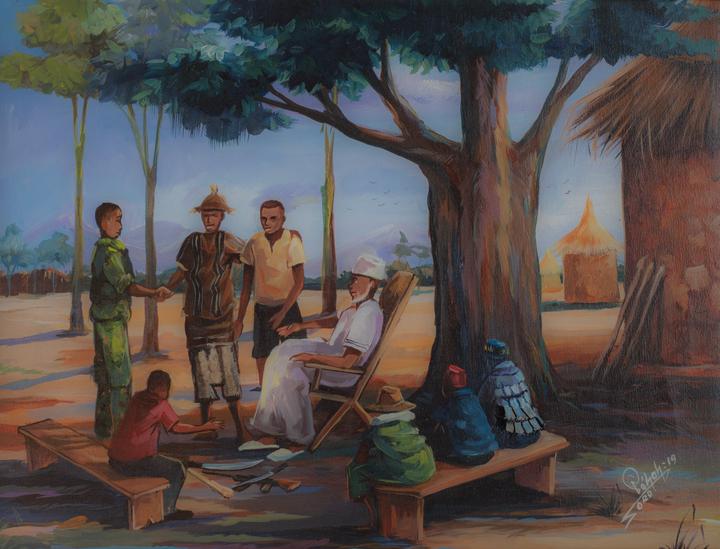Local Elites, Civil Resistance, and the Responsiveness of Rebel Governance in Côte d'Ivoire
 Illustration: Pehah Jacques Soro
Illustration: Pehah Jacques Soro
Abstract
Why is rebel governance more responsive in some areas than in others? In recent years, scholars have started to examine the determinants of rebel governance. Less attention has been given to explaining variation in the responsiveness of rebel governance, that is, the degree to which rebels are soliciting and acting upon civilian preferences in their governance. This article seeks to address this gap by studying local variation in rebel responsiveness. I argue that rebel responsiveness is a function of whether local elites control clientelist networks that allow them to mobilize local citizens. Strong clientelist networks are characterized by local elite control over resources and embeddedness in local authority structures. In turn, such networks shape local elites’ capacity for mobilizing support for, or civil resistance against, the rebels, and hence their bargaining power in negotiations over rebel governance. Drawing on unique interview and archival data collected during eight months of fieldwork, as well as existing survey data, the study tests the argument through a systematic comparison of four areas held by the Forces Nouvelles in Côte d’Ivoire. The analysis indicates that the strength of local elites’ clientelist networks shapes rebel responsiveness. Moreover, it provides support for the theorized civil resistance mechanism, and shows that this mechanism is further enhanced by ethnopolitical ties between civilians and rebels. These findings speak to the burgeoning literature on rebel governance and to research on civil resistance. In addition, the results inform policy debates on how to protect civilians in civil war.